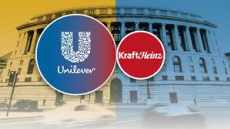
The proxy war is similar to the tender offer in some respects; in that it seeks to gain control of the target firm through a majority holding. In this instance, a proxy vote is where a shareholder is legally allowed to have someone else vote on their behalf on a specific matter. This aims to create a new management board which ultimately favours the acquisition to occur. If the senior management in one company turns around and is able to accommodate changes then the acquisition be more likely to go through.
Case Study
Just last year, in 2017, Unilever rejected an enormous $143 billion takeover bid from Kraft Heinz, supported by 3G Capital and business magnate Warren Buffet. This comes from a variety of reasons as Unilever believe it needs to protect its shareholders’ interests and believe that talks of such growth with Kraft Heinz has little potential. Kraft Heinz supported by 3G Capital and Buffet (who own 49% of Kraft) have been known for its aggressive cost-cutting strategies but ultimately taking on Unilever who have recently increased their debt capacity massively would suggest a tough feat. Previously, Kraft Foods have taken on mergers and acquisitions domestically and now as Unilever operates abroad, this proves a challenge in itself due to both transportation costs and culture changes. Cost saving measures are valued upwards of $3 billion and thus pose unattractive as Kraft Foods back down from the deal.
Furthermore, Kraft has offered buyout compensation in the form of both cash and shares offers, which generally look unappealing to Unilever investors. As a result, the buyout is deterred as shareholders reject the deal. Many shareholders are long-term investors, holding stock for over 7 years - such drastic changes will turn away heads due to uncertainty. As Unilever becomes less and less likely to be acquired, Kraft Foods, will look for reasons to ultimately put off the deal; with popular reasoning being that the “processed foods” businesses of the conglomerate are considered stagnant and unprofitable.
In a Deloitte’s annual report on M&A trends, the results point to strong deal activity ahead. “About 68 percent of executives at US-headquartered corporations and 76 percent of leaders at domestic-based private equity firms say deal flow will increase in the next 12 months. Further, most respondents believe deal size will either increase (63 percent) or stay the same (34 percent), compared with deals brokered in 2017.” The report also details that bigger firms are more confident about deals, many saying that they will engage in bigger deals in the coming year. Another finding was that tools and technology are the No.1 driver of M&A pursuits, which includes things such as talent acquisition too.
2017 was the biggest year for M&A with it marking the 3rd consecutive year in which cumulative M&A transactions have topped over $3 trillion. Continued growth in these sectors have been as a result of strong economic climate as well as rising confidence both from a consumer and investor standpoint. Consumers, especially in the USA have been especially confident with spending due to historically low unemployment currently under President Trump. However, this implies inflationary pressure due to greater spending habits and thus the US Federal Reserve have recently raised interest rates under monetary policy in order to combat these issues. Consequently, rising interest rates may have impacts on Global M&A as investors begin to hold back on investments as the cost of borrowing rises.
Image Credits: ft.com

0 Comment:
Be the first one to comment on this article.